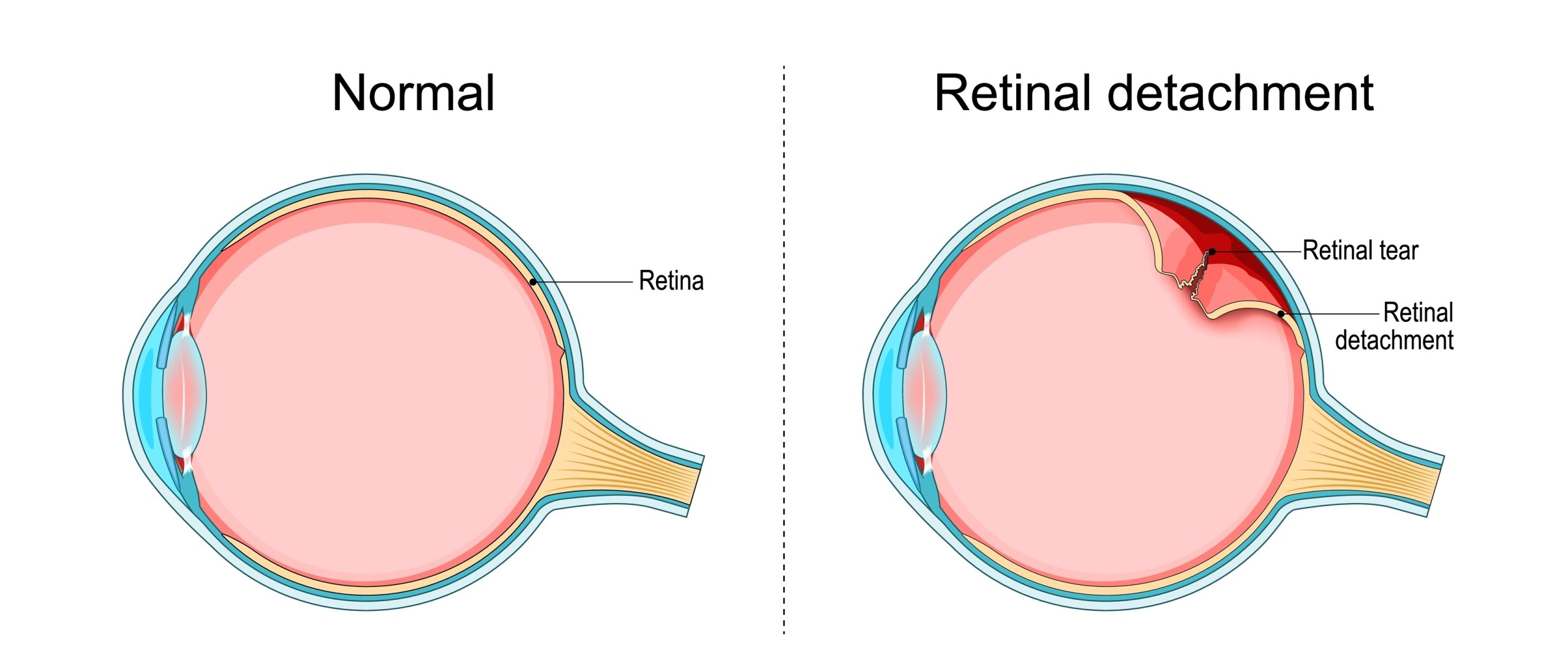Retinal Detachment Symptoms You Should Never Ignore
Submitted by Michael J. Elman, M.D. on April 28, 2025

Retinal detachment is a sight-threatening condition that requires urgent medical attention. At Elman Retina Group, Dr. Michael Elman, Dr. Sidney Schechet, and Dr. David Dao specialize in diagnosing and treating retinal diseases, including retinal detachment, using advanced techniques to preserve vision. They know that when patients recognize the symptoms early, this can prevent permanent vision loss and improve treatment outcomes.
What Is Retinal Detachment?
Retinal detachment occurs when the retina, the light-sensitive tissue at the back of the eye, separates from its underlying support structure. This detachment disrupts normal vision and, if untreated, can lead to blindness. The condition may develop due to aging, severe nearsightedness, prior eye surgery, trauma, or underlying retinal conditions.
Key Symptoms of Retinal Detachment
Recognizing the warning signs of retinal detachment is critical for seeking immediate care. Symptoms include:
- Sudden Increase in Floaters: While occasional floaters are common, a sudden appearance of numerous dark specks, cobwebs, or strands in your vision could indicate a retinal tear or detachment.
- Flashes of Light: Brief flashes, especially in your peripheral vision, may indicate that the retina is being pulled away from the eye.
- A Curtain or Shadow Over Vision: A dark curtain or shadow creeping across your vision from any direction is a serious symptom that suggests progressive retinal detachment.
- Blurred or Distorted Vision: If your vision becomes blurry or distorted for no apparent reason, it may be due to retinal damage.
- Loss of Peripheral Vision: A sudden or gradual reduction of side vision can indicate a progressing retinal detachment.
Causes and Risk Factors for Retinal Detachment
Certain factors can increase the likelihood of developing a retinal detachment. Some of the most common risk factors include:
- Aging: Retinal detachment is more common in individuals over the age of 50 due to natural changes in the vitreous gel inside the eye.
- Severe Nearsightedness: People with high myopia have longer eye shapes, which can put extra strain on the retina, increasing the risk of detachment.
- Previous Eye Surgery: Individuals who have undergone cataract surgery or other eye procedures may have a higher risk of retinal issues.
- Eye Trauma: Injuries to the eye, whether from accidents or sports, can lead to retinal tears that develop into a full detachment.
- Family History: A genetic predisposition to retinal detachment can increase a person’s chances of developing the condition.
Why Immediate Treatment Is Essential
Retinal detachment is a medical emergency. Delaying treatment increases the risk of permanent vision loss. At Elman Retina Group, our ophthalmologists use state-of-the-art diagnostic tools to diagnose retinal detachment and provide advanced treatments such as laser therapy, pneumatic retinopexy, vitrectomy, or scleral buckle surgery to restore retinal function.
If you experience any of these symptoms, do not wait to see if they improve—retinal detachment requires immediate medical intervention. The specialists at Elman Retina Group are committed to protecting and preserving vision. Call (410) 686-3000 to schedule an appointment today.



